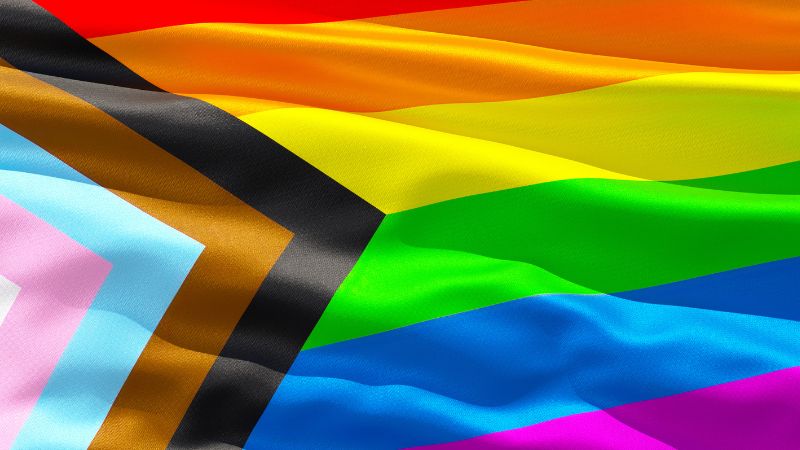A survey conducted in the United Kingdom has found that LGBTIQA+ people feel safer when they see the Pride flag on display.
New YouGov research shows that almost two in three LGBTQ+ Britons (63%) say that the Pride flag is important to them. Queer women are notably more likely to say so than queer men (70% vs 55%) and those with a different gender identity (e.g. nonbinary people) are more likely still to say so (77%).
The research highlights that most people in the LGBTQ+ communities like seeing the flags with two thirds (67%) saying that seeing the Pride flag displayed in small public settings makes them feel safer in that area. Women are again more likely to say so than men (75% vs 59%) as well as 79% of those with a different gender identity.

Lesbian and bisexual women have similar views on the Pride flag, although there is a more noticeable difference between bisexual and gay men, with the former noticeably less likely to see the flag as important (45% vs 56%) or to feel safer due to its presence (49% vs 61%).
Among transgender Britons, 72% say the flag is important to them, and an identical number say it makes them feel safer when displayed in small public settings.
The study also highlights that LGBTQ+ people feel less safe going about their daily business than the average citizen, and most people hold back from showing affection to partners in public out of feat of a homophobic reaction.
71% of gay men and 66% of lesbian women reported that they have held back from showing affection in public for fear of homophobic abuse. The report found that two thirds of people had experienced a homophobic reaction in public, and half those reported in had occurred in the last five years.
The results were higher for gay men than lesbians, 56% say they would feel uncomfortable holding hands in public and 63% say the same of kissing. By comparison only 9% of people in heterosexual relationships reported a fear of public displays of affection.
Read the full results of the survey.




